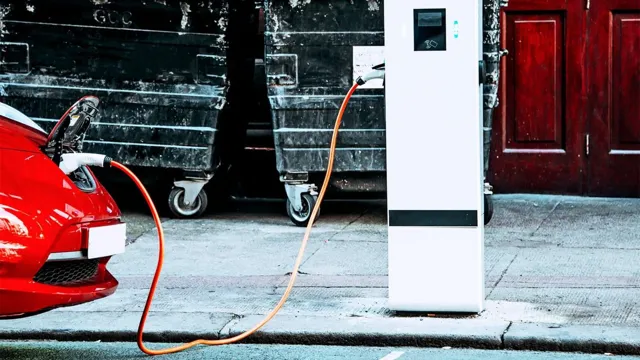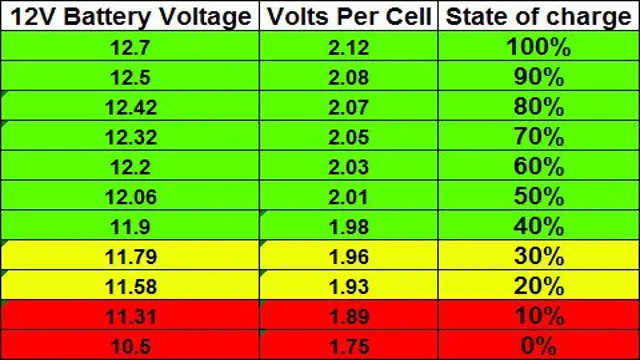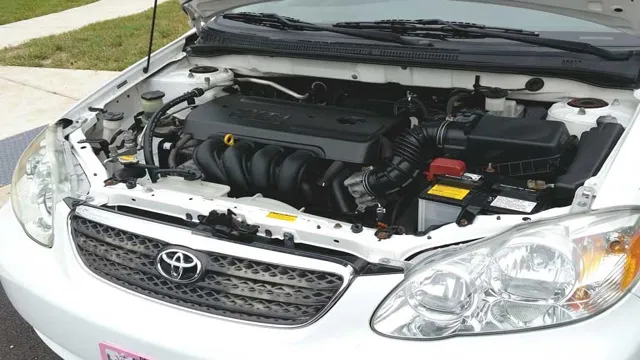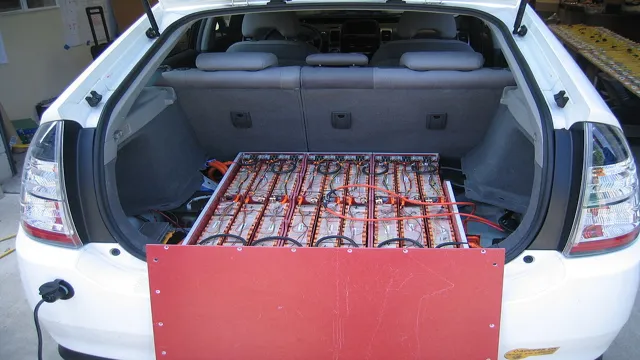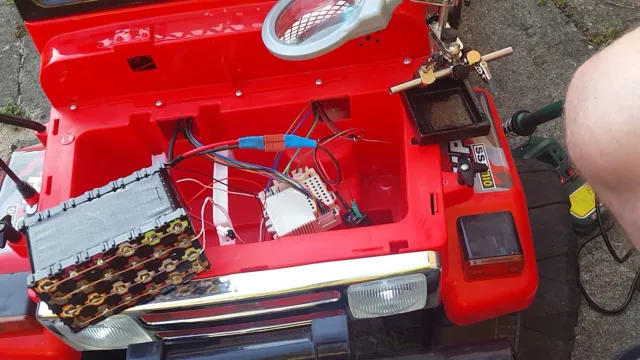Electric Car Battery Recycling: How to Properly Dispose of EV Batteries?
Are you wondering how to dispose of your old car battery responsibly? Whether you’re considering upgrading your vehicle’s battery or you just want to get rid of an old one, it’s important to dispose of it properly. Car batteries contain hazardous materials that can harm the environment if they’re not disposed of correctly. In this blog post, we’ll discuss the proper methods for disposing of car batteries and why it’s so important to do so.
So, let’s dive right in and explore the world of car battery disposal!
Environmental Impact of Batteries
As more and more cars are being electrified, the issue of disposing of batteries from electric cars comes into focus. Electric car batteries are made of precious and rare metals that are not easy to recycle. This leads to a significant environmental impact, as discarded batteries end up in landfills and leach harmful chemicals into the soil and water.
To mitigate this problem, manufacturers are now taking steps to design batteries that can be fully recycled and reused. Additionally, governments around the world are implementing regulations to force battery manufacturers to take responsibility for the end-of-life disposal of their products. As consumers, we can also play a role by properly recycling our old batteries and choosing to purchase electric cars with recyclable battery components.
With these collective efforts, we can reduce the environmental impact of batteries while enjoying the benefits of cleaner transportation.
Pollution from Improper Disposal
When it comes to improper disposal, batteries are a major contributor to pollution in our environment. Not only do they contain toxic chemicals that can seep into the ground and water supply, but they also produce greenhouse gases when incinerated. It’s estimated that Americans alone dispose of over 180,000 tons of batteries each year, and without proper recycling methods, they end up in landfills where they can take up to 100 years to decompose.
This is why it’s crucial to dispose of batteries properly through programs like Call2Recycle, which offers free drop-off locations for rechargeable batteries and cell phones. By reducing the amount of battery waste that ends up in landfills and implementing sustainable recycling practices, we can protect our environment from the damaging effects of battery pollution.

Recycling and Reusing Batteries
Battery recycling and reusing is an essential aspect of environmental sustainability. Batteries have become an essential component in our daily lives, powering everything from our smartphones to our cars. However, the environmental impact of batteries is often overlooked.
Batteries contain toxic chemicals such as lead and mercury, which can leak into the environment if not disposed of properly. Improper battery disposal can have deleterious outcomes on the soil, water, and air quality. Recycling and reusing batteries can significantly reduce the environmental impact of used batteries.
Recycling batteries involves separating the toxic metals and chemicals from the batteries. The purified material is then used to produce new batteries or other products. The reusing of batteries involves refurbishing batteries that are still in good condition and can be used again.
Not only does recycling and reusing batteries prevent toxic chemicals from polluting the environment, but it also conserves natural resources and reduces greenhouse gas emissions. By incorporating battery recycling and reusing into our daily lives, we can make a significant contribution to protecting the environment.
How Electric Car Batteries are Disposed
One of the biggest concerns surrounding electric vehicles is the disposal of their batteries. While electric car batteries can last for quite some time, eventually they will need to be replaced and disposed of properly. Fortunately, the batteries used in electric cars are designed with sustainability in mind.
Most of the materials used in these batteries can be recycled. In fact, up to 95% of the components in a typical electric car battery can be reused or recycled. Companies are now focusing on developing more efficient recycling methods to extract valuable materials like cobalt and lithium from used batteries.
This means that even at the end of its life cycle, an electric car battery can still contribute to a greener future. All in all, disposing of batteries from electric cars is becoming less of an issue thanks to advances in recycling technology and the sustainable design of these batteries. It is essential to continue investing in these recycling methods to help minimize the environmental impact of electric vehicles.
Battery Recycling Programs
Battery recycling programs play a crucial role in the disposal of electric car batteries. These programs ensure that the batteries are not thrown away irresponsibly and that their components are extracted and used in new battery manufacturing or other products. The most common method of recycling electric car batteries involves shredding the batteries into small pieces, which are then separated into their individual components such as cobalt, nickel, and lithium.
These components are then either sold to manufacturers who use them in the production of new batteries or other products or are reused in the production of new batteries. This process not only helps reduce the environmental impact of the batteries but also ensures that valuable resources are not wasted. Additionally, many automakers are also offering recycling programs, which help reduce the costs associated with the disposal of these batteries.
With the increasing popularity of electric cars, battery recycling programs are becoming more important than ever, and consumers should take advantage of these programs to help minimize the environmental impact of their electric vehicles.
Manufacturers Take-back Programs
Electric car batteries are a revolutionary technology that can help decrease the reliance on fossil fuels. However, what happens to these batteries once they reach the end of their lifespan? That’s where manufacturers take-back programs come in. These programs ensure that the batteries are properly disposed of and recycled, instead of ending up in landfills.
The batteries can contain valuable materials such as lithium and cobalt, which can be recovered and reused in new batteries. It’s important for the environment and future generations that electric car manufacturers take responsibility for the disposal of their batteries. As consumers, we should also properly dispose of our batteries and recycle them for a more sustainable world.
Battery Restoration and Reconditioning Companies
When it comes to electric car batteries, disposing of them can be a challenge as they contain toxic chemicals that can be harmful to the environment. Fortunately, there are battery restoration and reconditioning companies that can help with this problem. These companies specialize in reviving batteries that have lost their efficiency and extending their lifespan.
However, when a battery can no longer be restored, it is important to dispose of it properly. Many electric car manufacturers have set up recycling programs to address the issue of battery disposal. These programs involve disassembling the battery and segregating the components for recycling.
By doing so, valuable materials such as lithium and cobalt can be extracted and reused in new batteries, reducing waste and conserving resources. So, the next time you need to dispose of an electric car battery, be sure to do so responsibly and consider recycling as a sustainable option.
Future of Battery Disposal
As the popularity of electric cars continues to soar, concerns around how to dispose of the batteries from these vehicles are also growing. Traditional methods of disposal can be harmful to the environment, and the problem is only set to increase as more and more electric vehicles hit the roads. However, there are some exciting developments in this field that could help to tackle the issue.
Researchers are exploring ways to recycle the materials used in batteries to reduce the environmental impact of disposal. Additionally, companies are working on developing new recycling technologies to improve the efficiency of battery recycling. While there is still work to be done, it’s encouraging to see progress in this area and a commitment to sustainable solutions.
Ultimately, as demand for electric vehicles grows, it will be increasingly important to find responsible ways to dispose of their batteries.
Alternative Battery Technologies
As our reliance on battery-powered devices and electric cars continues to grow, the problem of battery disposal becomes increasingly relevant. Traditional lithium-ion batteries have potential hazards when disposed of improperly, including chemical contamination and fire hazards. However, alternative battery technologies provide promising solutions that will mitigate these risks.
For example, solid-state batteries or redox flow batteries use non-flammable liquids or solid, non-toxic materials, making them much safer to recycle or dispose of. Additionally, these technologies have the potential to be more energy-dense than traditional batteries, meaning they can store more energy in a smaller space, reducing the overall amount of waste. With alternative battery technologies emerging onto the market, it’s clear that the future of battery disposal is moving in a positive direction, making battery-operated devices safer and more sustainable.
Regulations and Policies for Disposal
As the world continues to adopt electric vehicles and energy storage systems, there is a growing concern about the safe disposal of used batteries. Governments and industry leaders are working towards implementing regulations and policies that support sustainable and eco-friendly battery disposal practices. The goal is to prevent the release of harmful chemicals and heavy metals into the environment while also recovering critical materials for reuse.
In the future, we can expect to see more advanced recycling technologies that enable the recovery of valuable metals such as lithium and cobalt. Battery manufacturers will also have to play a role in designing their products for end-of-life recycling to minimize waste and promote circularity. By collaborating and implementing best practices, we can ensure that the shift towards clean energy solutions is both economically and environmentally sustainable.
Conclusion
In summary, when it comes to disposing of batteries from electric cars, it’s important to remember that these powerhouses of energy are not only environmentally friendly but extremely valuable too. Rather than simply throwing them away in the trash, it’s important to recycle and re-use them wherever possible, allowing for a sustainable and innovative future. After all, if the electric car is the vehicle of tomorrow, then its batteries are the fuel that will keep us moving forward.
“
FAQs
Why is it important to dispose of batteries from electric cars properly?
It is important to dispose of batteries from electric cars properly because they contain hazardous chemicals and heavy metals that can pose environmental and health risks if not handled correctly.
How can batteries from electric cars be disposed of safely?
Batteries from electric cars can be disposed of safely through recycling programs or by taking them to designated battery disposal facilities.
Can batteries from electric cars be reused or repurposed?
Yes, batteries from electric cars can be reused or repurposed in other applications such as energy storage systems.
What should I do if I don’t know how to dispose of my electric car’s battery?
If you are unsure about how to dispose of your electric car’s battery, contact your electric car manufacturer or local waste management agency for guidance. They can provide information about proper disposal methods and disposal facilities in your area.

